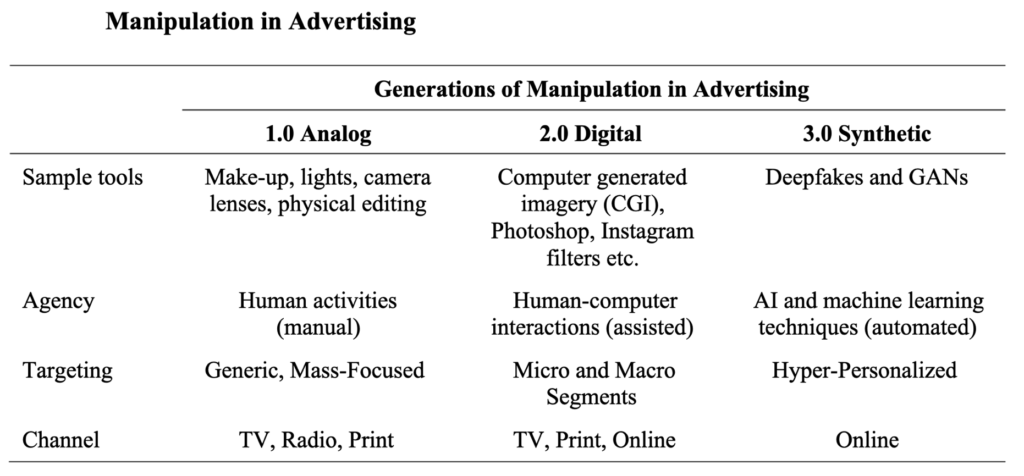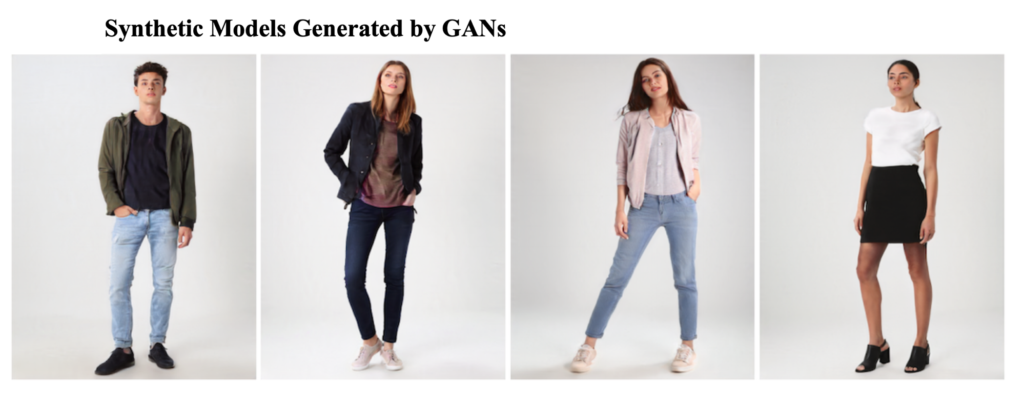Synthetic ads, GANs, AI-generated media

Preparing for an era of deepfakes and AI-generated ads?
A framework has become available for understanding responses to manipulated advertising in the context of AI-generated media. Generations of manipulation in advertising is also analysed as the timeline of analogue, digital and synthetic media.

According to the authors, “technological innovations have given the advertising industry the digital and automatic tools enabling advertisers to automate much of the advertising processes, and produce “synthetic ads,” or ads comprising content based on the artificial and automatic production and modification of data. The emerging practice of synthetic advertising, to date the most sophisticated form of ad manipulation, relies on various AI techniques such as deepfakes and generative adversarial networks (GANs), to auto-create content that depicts an unreal, albeit convincing, artificial version of reality.”
The work will help to explain “how consumers respond to the more sophisticated forms of synthetic ads – such as deepfakes – that are emerging at an accelerating rate. To guide research in this area, a research agenda is developed focusing on three manipulated advertising areas – ad falsity, consumer response, and originality.”

Please, welcome the work of Colin Campbell and his co-authors in the Journal of Advertising: Campbell, C., Plangger, K., Sands, S., & Kietzmann, J. (2021). Preparing for an era of deepfakes and AI-generated ads: A framework for understanding responses to manipulated advertising. Journal of Advertising.
Authors
Colin Campbell, University of San Diego
Sean Sands, Swinburne University of Technology




